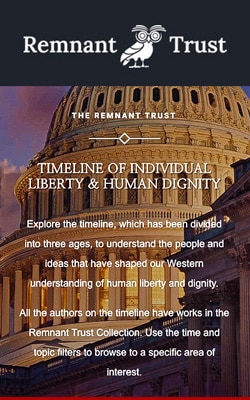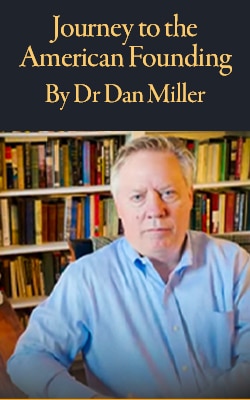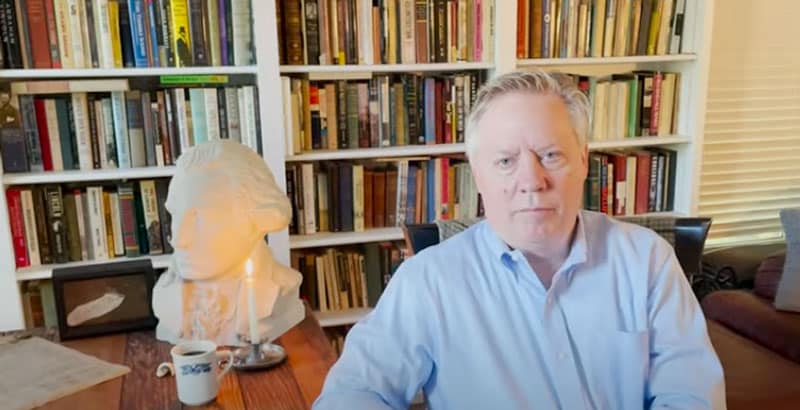Journey to the American Founding
May 11 1773
The stories we’re seeing from the last half of 1772 and early 1773 are a mixture of change and continuity. Surrounding the mixture is an intensification of actions and decisions. The new and old twist together in revolving cycles. The pace is not what it once was—it has picked up speed.


Excerpts from: Americanism Redux: May 11, on the journey to the American Founding, 250 years ago today, in 1773
Hear the baby crying. Hungry for a feeding. Another woman will need to nurse her. The baby’s mother, Sarah, died yesterday at the age of 37. The baby is—or should it be “was”?—Sarah’s eighth. Sarah’s husband, her widower of a day’s length, places his head in his hands. . . Paul Revere stands at the new grave, his dead wife below the fresh dirt.
. . .He’s nicknamed “Jackie” and is on the second day of a trip with his stepfather. Off to college in the big city of New York. . . Excited to be there. A whisper of doubts. He’ll miss his sister and even more will miss his girlfriend whom he wants to marry. And the classes at college? Well, hard to say just yet how he’ll like them. . . He looks at the tall man traveling with him. Do I share my thoughts with him? . . . George Washington will go another day without knowing of his stepson Jackie’s anxiety over college.
Damn that shovel. He’s Jamey but they call him “Coachman.” He’s got a lot of personal pride and looks for every chance to assert himself. He doesn’t like other people telling him what to do. . . He’ll only work as long as he wants to and then he stops, when he decides, like on ditch-digging projects. When Coachman is tired of digging, he throws the shovel down and that ends the work. He’s paid the price for his ways—his body streaked with slash marks and small, round holes where metal was pressed into his flesh. Jamey’s white enslaver, James Hill of York County, Virginia colony, threatens every day to send him to the Eastern Shore across Chesapeake Bay. . . Coachman stares at him.
Also
Yesterday, King George III approved of the Tea Act passed in Parliament. The East India Company received formal access to selling tea at a reduced price directly to British colonists in the American colonies. . . It is to be a benevolent monopoly, saving a corporation, paying for itself, furnishing a popular substance, and reforming imperial practices.
Today, Brigadier General John Burgoyne stands up in Parliament’s House of Commons and calls for a special committee. He’s seeking a formal inquiry into the conduct of General Robert Clive. Clive has been a soldier and imperial official in British India. . . Burgoyne suspects much of Clive’s money has been gained through corruption. . . Burgoyne’s call for an investigation may complicate British Prime Minister Lord North’s work to reconfigure the East India Company.
Today, Granville Sharp, office-holder in the British monarchy, renowned musician, skilled writer, and talented legal theorist, begins his work on a judicial case that he hopes will continue to advance the abolition of slavery. He’s following his first pro-abolition case that he helped to win a year earlier.
And today, as a reminder of the destructive physical and moral effects of alcoholism, an unknown English artist publishes a political cartoon. In it a devil-like skeleton compels a man to swallow the remaining wine in his glass. Soon, it appears the man will die from a dagger wielded by the skeleton. The man is helplessly subjected to the will of another, deprived of liberty through addiction, on the verge of death and bound for the underground.
For You Now
Constraints, boundaries, and restrictions are everywhere in our story for today. We see examples of many forms.
A woman whose body can no longer stand the strain of a dangerous moment in life—giving birth.
A young man whose desire is divided—by what he wants and what his blended family wants.
A young man consigned to breaking rules and laws to catch any whiff he can of freedom’s winds—tied by bonds of skin.
A monarch’s assent to a law made by other people with their assurance that good things will happen—depending on reactions by people three thousand miles away in two different physical directions in regions he can’t even imagine.
A soldier questioning another soldier’s performance in duty—waiting to see if others will assist in the accountability.
A polymath dabbles in work meant to change the lives of everyone—with millions more cases ahead and a single victory behind him.
An artist expressing a problem in life with ink on paper—knowing nothing about any difference it will make.
The limits in life have the appearance of being everywhere. The spirit in living gives the ability to test them, one by one.
Suggestion
Consider the limit that you want to test.
TITLE: Americanism Redux: May 11, on the journey to the American Founding, 250 years ago today, in 1773
By Dr. Dan Miller
To know us better then is to know us more fully now. Welcome to Americanism Redux and my one-a-week stories of 250 years ago. For the all the stories thus far, Visit Historical Solutions, Dr Dan Miller’s website>

Reference: The Remnant Trust Collection
A Declaration of the People’s Natural Right to a Share in the Legislature; Which is the Fundamental Principle of the British
Constitution of State by Granville Sharp – Reference #0102
“Two years later, Sharp will write this influential work.”
View The Remnant Trust “Wisdom of the Ages Athenaeum PDF for reference>
Journey to the American Founding
Welcome to Americanism Redux, a series by historian author, Dr. Dan Miller. He explores what Americanism meant 250 years ago and its significance for America today.
What Can I Do?
We invite you to share our passion for Individual Liberty and Human Dignity to a new generation including educators, students, business leaders and Americans from all walks of life.




